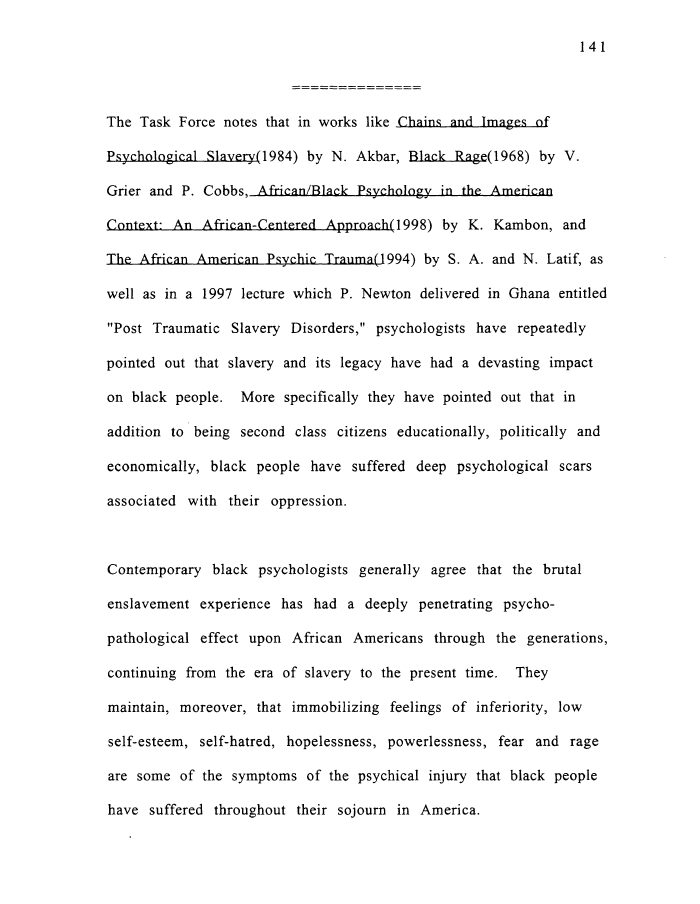 |
||||
|
TASK FORCE TO STUDY THE HISTORY AND LEGACY OF SLAVERY IN MARYLAND (Final Report) 1999/12/31 MdHR 991422 MdHR 991422, Image No: 150 Print image (43K) |
 |
||||
|
TASK FORCE TO STUDY THE HISTORY AND LEGACY OF SLAVERY IN MARYLAND (Final Report) 1999/12/31 MdHR 991422 MdHR 991422, Image No: 150 Print image (43K) |
| 141 The Task Force notes that in works like Chains and Images of Psychological S1avery(1QR4) by N. Akbar, Black Rage(1Q6K) by V. Grier and P. Cohhs^ African/Black Psychology in the American Context: An African-Centered Approach(l998) by K. Kambon, and The African American Psychic Trauma(19Q4) by S. A. and N. Latif, as well as in a 1997 lecture which P. Newton delivered in Ghana entitled "Post Traumatic Slavery Disorders," psychologists have repeatedly pointed out that slavery and its legacy have had a devasting impact on black people. More specifically they have pointed out that in addition to being second class citizens educationally, politically and economically, black people have suffered deep psychological scars associated with their oppression. Contemporary black psychologists generally agree that the brutal enslavement experience has had a deeply penetrating psycho-pathological effect upon African Americans through the generations, continuing from the era of slavery to the present time. They maintain, moreover, that immobilizing feelings of inferiority, low self-esteem, self-hatred, hopelessness, powerlessness, fear and rage are some of the symptoms of the psychical injury that black people have suffered throughout their sojourn in America. |